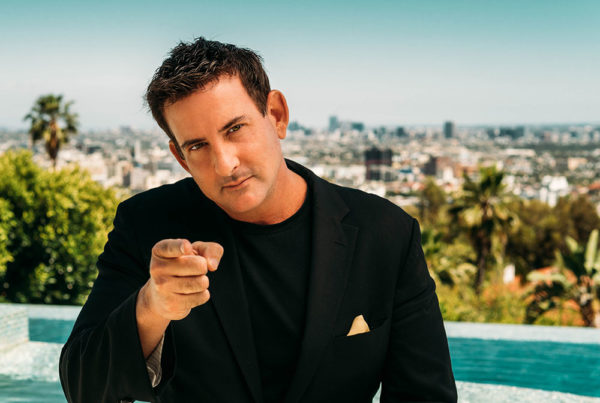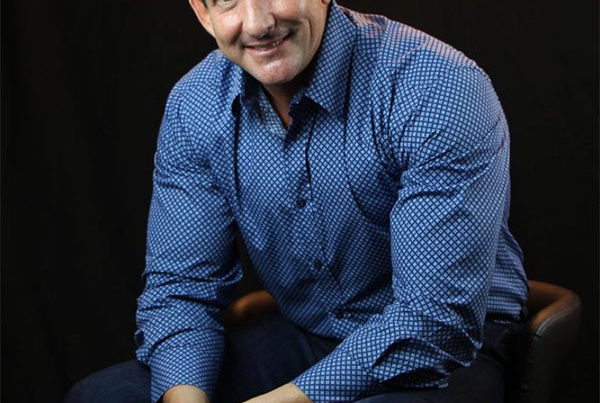Are successful people confident based on their words?
The answer: It depends on what they are saying and doing. I personally disagree that confidence is just an inherent part of someone’s natural personality. It’s an overused statement: “Just believe in yourself and you will find success.” How so? If someone is dropped off in a foreign place where they don’t speak the same language and must instead rely on others to assist them, are they confident in their ability to communicate effectively with those around them? Doubtful, unless they have challenged themselves previously to be prepared for not being in control. Let’s look at what true confidence really is: using words, analytical mathematics, problem solving, and finally (and most importantly) – your own urgency.
How do we make words action based? Start with “practiced outcomes” – what you want to achieve by problem solving creates confidence, and words are the catalyst to create action on the activity of building one’s confidence. Words can also be numbers, and numbers can back up words in order to achieve the greatest task at hand – which is problem solving and measuring the effectiveness of your actions.
Now let’s look at the word “doubt”. It’s just another word, and should be understood as just a temporary part of the problem, not a lifetime sentence derived from the meaning we give a single word. IT DOES NOT take confidence to strive higher to take on new challenges. It takes both awareness of self-doubt and due diligence to step into the fear of the unknown first – which is defining what meaning you give your words and actions to move forward.
Your own words can be leveraged in a fantastic way, once you become more self-aware of both your strengths and weaknesses. Incredible growth starts with learning to be what you think you are not, as long as you start studying how to turn a negative word into a practiced strength. This leads to the next word to embrace and practice – and that word is boundary. This can be understood as the act of qualifying what outcomes you are truly looking for, in order to build your engine of words powerfully backed with action. It also means learning how to say “NO” more often, so that you have time to problem solve and discover what you truly want from your words. What we see as outside observers can often be obscured and wrapped in a cloud of only seeing the end solution of someone’s long term initiative – something we might see as being truly possible (or impossible) to achieve. Engaging and acting on the right words increases your odds of what you can achieve.
Words that are practiced create an amazing psychological shield that will quickly deflect external noise. The more you endure and keep moving forward, the more resilient you will become. Even if your ego is challenged by obstacles, this is truly the definition of how you believe in yourself and use your words no matter what you take on, and no matter what words you hear from your interior conscience or from the exterior “drama seekers” around you.
Below are examples of three extremely successful people that utilized their own formulas and words to create small victories leading to massive successes using words, mathematics, and problem solving. It’s not the magnitude of what is accomplished, it’s the accomplishment of your own definition of what you want to build confidence in.
1. Albert Einstein
Albert Einstein is acknowledged as both the greatest scientist of the twentieth century and one of the most notable physicists of all time. It’s said that he had a learning disability in his childhood. He could not talk until he was three, and could not read until he was 8.
– Einstein turned learning into incredible strength, by transforming research into information that permanently changed how we view the universe around us.
– He turned problem solving into a solutions by breaking through the barrier of accepted principles of physics and solving paradoxes that had mystified the scientific community for many years.
2. Stephen Hawking
This famous scientist is considered along with Einstein to be among the greatest scientists of the twentieth century. Hawking’s “Big Bang” and “Black Hole” theories polarized the attention of the History of Science.
⁃ Hawking consistently problem solved and didn’t listen to those that tried to place a limited number on his remaining years of life.
⁃ He uses his words to educate others, and mathematics to build evidence behind the principles that he teaches.
3. Warren Buffet
Included among the Top 10 wealthiest individuals in the world.
⁃ Buffet consistently reads words and has done so since childhood, in order to constantly build his base of knowledge into a fortress of information that constantly renews and rebuilds itself larger and stronger than before.
⁃ He utilizes analytics to project and problem solve future obstacles before they occur, while maintaining strong confidence in the evidence of his problem solving.
Good words overcome doubt, and practicing on good words allows for belief in oneself. Master your words, and you will master your life.
– Tim S. Marshall, Author of “The Power of Breaking Fear”
Some reviews of “The Power of Breaking Fear”:
“The Power of Breaking Fear”
“Tim S. Marshall has gone out of his way to arm his readers with a seemingly endless number of vitality strategies that are easy to incorporate into one’s daily life. The Power of Breaking Fear belongs on every bookshelf.”
– U.S Review
•••
– Independent Press Award (IPA)
“The Power of Breaking Fear” winner for Best Audio and book Content!
•••
“The Power of Breaking Fear” is a must-read for anyone who is frustrated in life, and wants to achieve true long-lasting success and happiness.”
-Paul Noble, 5-Time Emmy Award Winner
•••
“The Power of Breaking Fear” is one of the most fascinating books I have seen. A fresh new look to end the fears that hold us back from true success.”
– Kenneth Blanchard, #1 Best-Selling Author of The One Minute Manager, 13-million copies sold.




